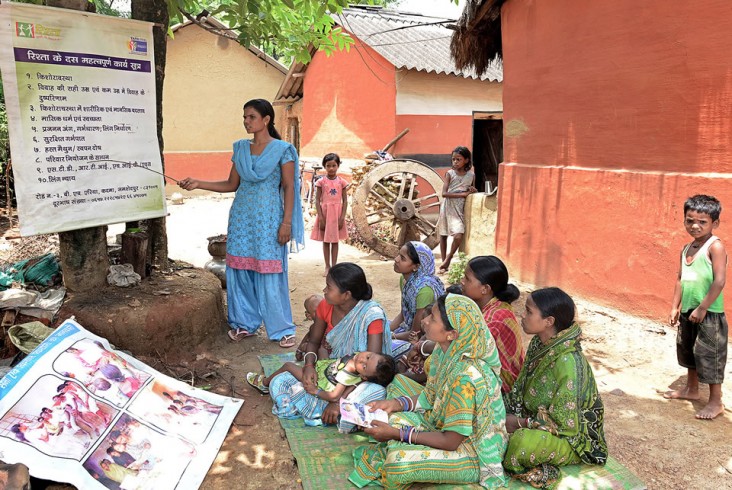- What We Do
- Agriculture and Food Security
- Democracy, Human Rights and Governance
- Economic Growth and Trade
- Education
- Environment and Global Climate Change
- Gender Equality and Women's Empowerment
- Global Health
- Humanitarian Assistance
- Transformation at USAID
- Water and Sanitation
- Working in Crises and Conflict
- U.S. Global Development Lab
Speeches Shim

While biology and physiology are important factors of an individual’s health, the social determinants that shape human interaction also play an important role in health at the individual, family and community levels. These factors include knowledge, attitudes, social and cultural norms and conventions, and behaviors.
Social and Behavior Change Interventions
Improving the quality or coverage of health products and services is not, in many cases, sufficient to improve health outcomes. It also requires changing the health-seeking behaviors of individuals and communities, as well as the norms that underpin those behaviors. Interventions that seek to change behaviors by addressing factors such as knowledge, attitudes, and norms, known collectively as social and behavior change (SBC) interventions, complement and enhance the role played by services such as HIV counseling, testing, and treatment; voluntary medical male circumcision; antenatal care; and family planning. SBC interventions are critical to ensuring that people who are most in need can access available health care.
SBC interventions shape not only demand, but also communication between health providers and clients, families and couples, and engage community leaders and other influencers in promoting the adoption of healthy behaviors and practices. Communities, families, and health care workers who have the right skills and information can maximize access to life-saving commodities and high-quality health services.
Social and Behavior Change at USAID
Through SBC activities, USAID and its partners raise awareness, reduce misinformation and barriers that prevent individuals, families, and communities from practicing behaviors that improve health outcomes. The Agency’s SBC investments include programs that:
- Increase demand for available commodities and services.
- Foster sustained changes in behavior by shifting attitudes, addressing norms, and reducing barriers to consistent practice of healthy behaviors.
- Support health care workers by building skills and addressing biases that present barriers to care.
- Build capacity of organizations and governments to implement and manage SBC interventions in priority countries.
In addition to numerous programs and projects that operate within specific health and disease areas, the Agency supports activities that operate across the health sector. These include:
- Translating Effective Practices for Research, Marketing and Design (TRANSFORM)
- USAID’s Breakthrough Action and Breakthrough Research
- Results from the Global Summit on Enhancing Child Survival and Development in Lower- and Middle-Income Countries by Achieving Population-Level Behavior Change

Comment
Make a general inquiry or suggest an improvement.